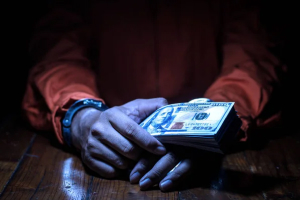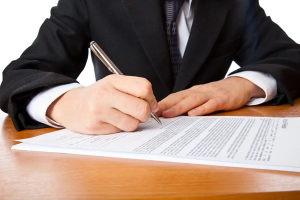
Bail bonds permit defendants to be released from jail while awaiting trial. Many folks don't know how bail bonds work. This post will discuss California bail bonds, including what they are, how they work, and the legal requirements involved. We'll also cover California bail bond types and their costs.
Whether you are currently facing criminal charges or only seeking to understand the criminal justice system better, this topic will provide a comprehensive overview of bail bonds in California.
Also, have you or someone you know been arrested? If so, let us help you get out of jail fast! At The Hurwitz Law Group, we have assisted people in bailing their relatives and friends forever. If you have any inquiries about the bail bond process, please call us at (323) 747-1121, and we will answer all your questions.

Typically, the bail amount is determined at the first court appearance, also called the arraignment stage. A judge may either release a defendant on their own recognizance (OR) with a vow to return to court later or deny their OR and impose bail.
The arrested individual is typically released without bail if the allegation is minor, such as driving under the influence with no injuries or significant property damage.
If your offense is listed on the jail's bail schedule, you must post bail or pay the required amount. An arresting officer may request a higher bond than the bail schedule suggests.
The bail amount in California can range from $10,000 to $100,000, depending on the circumstances. Because many people do not have this bail money readily available, many offenders prefer to post bail through a bail bond agent rather than depositing their money.
In California, a defendant can be released on several types of bail while awaiting trial. The kind of bail granted depends on the nature of the offense, the defendant's criminal history, and other factors.
In California, cash bail is the most common form of bail. Post a cash bond involves the defendant or someone on their behalf must pay the court the total amount of bail in cash. If the defendant appears in court as needed, the bail is returned after the proceeding.
A property bond is a form of bail in which the defendant or a representative utilizes their property as collateral for the bail amount. If the defendant fails to appear in court, the court may seize their property to cover the bail amount.
A bail bond is a contract between the court, the defendant, and the bail bond agent. The defendant or a representative pays a non-refundable fee to the bail bond agent. The agent then posts the total amount with the court. The bail bond agent is responsible for settling the entire amount if the defendant does not appear in court.

The requirements for posting parole are relatively straightforward. The cosigner must be a legitimate resident of the United States who is at least eighteen years old. In addition to this requirement, you must bring three additional items when posting bail.
Additionally, you must be able to provide the following details:
In California, there are several payment methods available to pay bail:

You may propose a lower bail amount or argue against the prosecution's attempt to increase your bail.
A decision regarding whether to reduce your bail amount will be founded on the following:
In the case of severe offenses such as murder, kidnapping, robbery, and sexual assault, the court must find unusual circumstances, such as the discovery of new evidence or a modification in the facts of your case, to justify changing your bail.
You should be released as soon as your bond has been posted and your paperwork has been processed. Depending on the facility, its personnel, and your specific circumstances, this can take anywhere from 30 minutes to four hours. In peculiar cases, it may take up to 12 hours. If you are detained for more than 12 hours after posting bond, you should contact an experienced defense attorney who can assist you in protecting your rights.

If you fail to make bail payments on time, your bondsman may file a civil lawsuit against you to regain the money you owe. In addition, they will revoke your surety if your case is still pending.
Unless another bail bond company assumes responsibility for your bail, you will be arrested and held in detention until your court date.
Once you post cash bail, you risk forfeiting the entire sum to the court. The same applies to a bond, except the bail bond company is liable for the whole amount.
If you offer collateral for the bail bond, the surety may sell it to recoup the money owed to the court. Without collateral, the bonding firm may hire a bounty hunter to find the defendant.
If the defendant is arrested, bounty hunters are paid a portion of the bond. They have the authority to seize the individual and restore them to the authorities of the jurisdiction from which the defendant fled. There is a deadline for the defendant's return. Otherwise, the surety must pay the entire bail amount.
But, if the defendant appears within 180 days of the forfeiture date and provides a legitimate cause, the court may revoke its judgment and release the surety.
They include the following:
Failing to appear has severe financial and criminal penalties.
It can also justify the court denying or increasing your bail in later court hearings when the current case is settled, and you are arrested again.

If you cosign someone's bail, you become what's known as the "cosigner." As a cosigner, you take on specific responsibilities and obligations, including:
It's important to remember that when you cosign someone's bail, you are taking on significant financial and legal responsibilities. Considering cosigning someone's bail, it's essential to consider the risks and potential consequences before deciding. It's also good to consult an experienced criminal defense attorney to understand your obligations and options.
When a defendant is released on bail, they have specific responsibilities that they must fulfill. Here are some of the primary responsibilities that a defendant has:
Suppose the defendant fulfills all their responsibilities while out on bail, their bail will be returned at the end of the trial, regardless of the outcome. However, if the defendant fails to fulfill their responsibilities, their bail may be forfeited, and they may face additional legal consequences.
Bailing someone out of jail can benefit the defendant and their loved ones. Here are a few of the main advantages of bailing someone out of prison:

Your freedom is at stake. Act now before you lose time with your family and friends. Contact our firm at (323) 747-7484 for a free consultation and professional advice about your case. Hurwitz Law Group will help you fight the charges, set up a plan for your defense, guide you through the entire process, reduce your bail cost, and prevent errors in your case.
With many years of legal experience, our California criminal defense lawyer will give you the personal care that only comes from working with a skilled and dedicated team.
Search
Categories